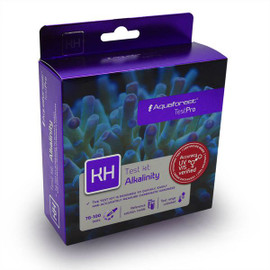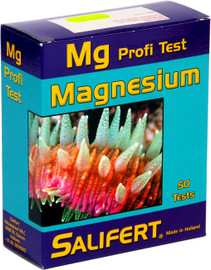Calcium alone cannot form the skeletal material of corals and allow calcareous algae to grow. Some other substances are needed as well.
A few other constituents are carbonate and bicarbonate. These two substances also have a major impact on the stabilization of the pH in the proper range of 8.1 – 8.4. Such stabilization is also called buffering.
The total carbonate and bicarbonate concentration is also called carbonate alkalinity or carbonate hardness.
The only difference between alkalinity and carbonate hardness is a conversion factor.
NSW has an alkalinity of approx. 2.7 meq/L or approx. 7.5 dKH when expressed as carbonate hardness.
For a stable system the alkalinity or carbonate hardness should have a value similar to NSW or slightly higher and should preferably not fluctuate by more than 5%.
This means a maximum fluctuation of 0.14 meq/L or 0.4 dKH.
Therefore an alkalinity test kit should be capable in measuring in steps smaller than 0.14 meq/L.
The Salifert KH/Alk test is very straightforward. It measures in sufficient small steps of 0.1 meq/L or 0.3 dKH with a sharp color change.
This makes detection of important yet small change possible.
The kit can perform approx. 100 - 200 measurements.







